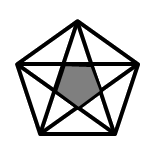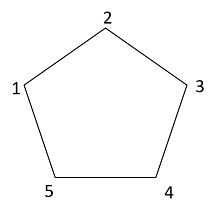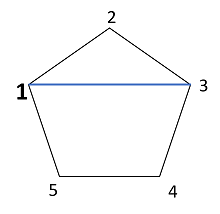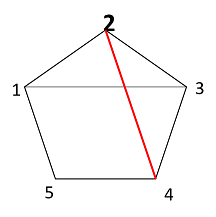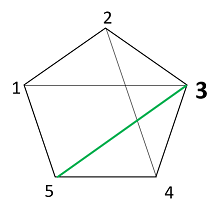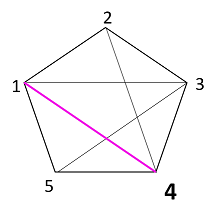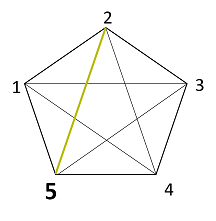 UCAT Abstract Reasoning Full Guide & Sample Questions
UCAT Abstract Reasoning Full Guide & Sample Questions
The UCAT abstract reasoning test uses various shapes to test your ability to find common patterns.
It includes 55 questions and has a time duration of 13 minutes.
The questions on the test use four formats, which you can read about and try solving on this page.
What is the UCAT Abstract Reasoning Test?
The UCAT Abstract Reasoning subtest is one of four parts of the UCAT Cognitive Test. It is used to assess one’s ability to recognise patterns as well as generate hypotheses, change tracks, and critically evaluate. You must consider these skills throughout this section of the test. This test does not contain numbers or words, but rather the questions are based on patterns of provided shapes.
The Abstract Reasoning section is comprised of 55 questions (associated with sets of shapes) to be completed in 13 minutes (plus one minute for instructions).
The UCAT Abstract Reasoning questions are very tricky, and a lot of test takers find themselves wasting a lot of time on the first questions of the subtest.
On our PrepPack™ we included a complete Abstract Reasoning guide (in addition to three Abstract Reasoning practice tests), to help you identify the patterns faster and cut down that solving time.
UCAT Abstract Reasoning Section Format
There are four different question types in the Abstract Reasoning section:
- Type 1 – You are given a test shape and asked to decide to which set of shapes presented your shape belongs (Set A, Set B, or Neither).
- Type 2 – You need to choose which shape comes next in the provided series of shapes.
- Type 3 – You need to select which shape completes the provided statement (involving a group of shapes). These statements are presented in the form of an analogy between two shapes, similar to word analogies.
- Type 4 – There are two sets of shapes and you need to choose which answer choice belongs to one of the sets.
UCAT Abstract Reasoning Sample Questions
Question Type 1 - Example 1
1. Which set does the shape belong to?
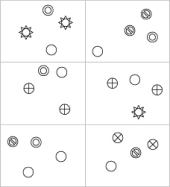

More free sample questions are available on our free UCAT practice test. The question bank we use is full of realistic UCAT questions, and each abstract reasoning question comes with detailed solutions.
Question Type 1 - Example 2
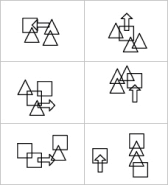

2. Which set does the shape belong to?
Question Type 2
Which shape completes the pattern?
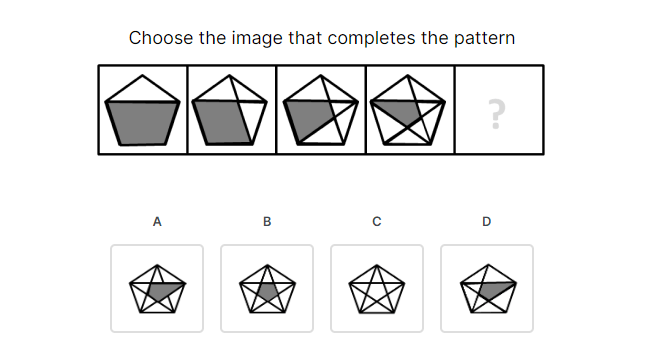
The UCAT Preparation Pack includes full Abstract reasoning drills, with detailed answers like the ones these sample questions offer. Click here to read more about the preparation pack!
Question Type 3
Which shape completes a similar analogy in the second row as the one found in the upper row?
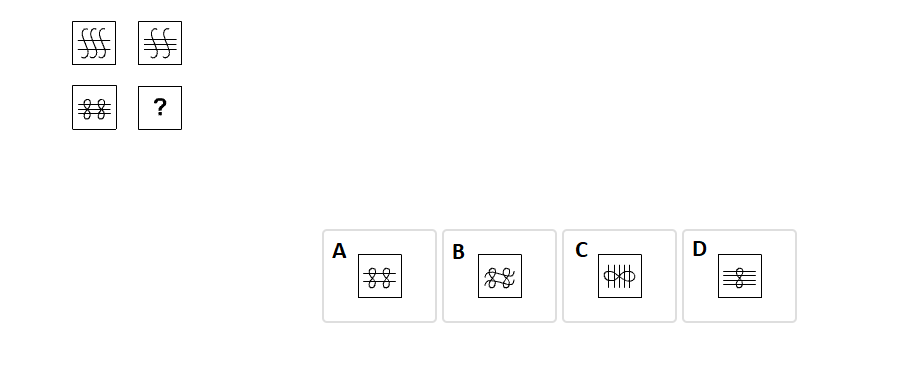
Question Type 4
Which of the shapes belongs in set A?
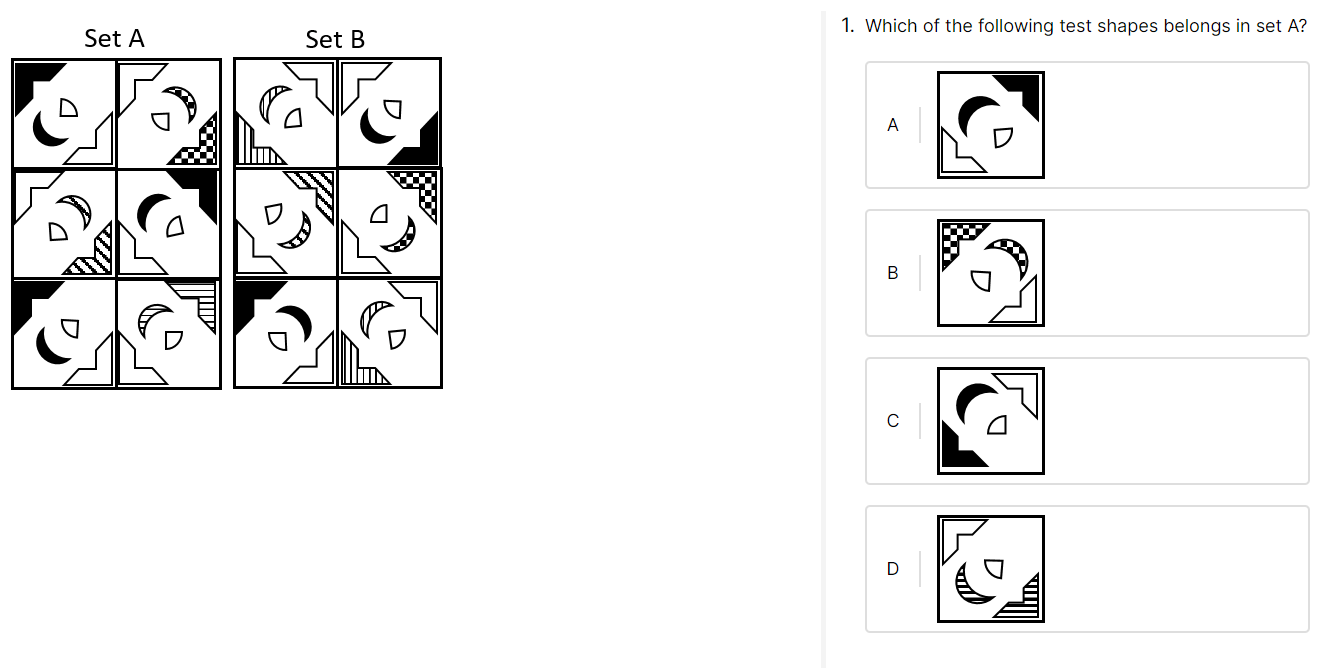
Use the UCAT Preparation Pack to hone your abstract reasoning skills and ace the UCAT test as a whole.
Ace Your Job Search with a Custom Prep Kit
Job hunting doesn't have to be stressful.
Prepare smarter and ace your interviews faster with our Premium Membership.




